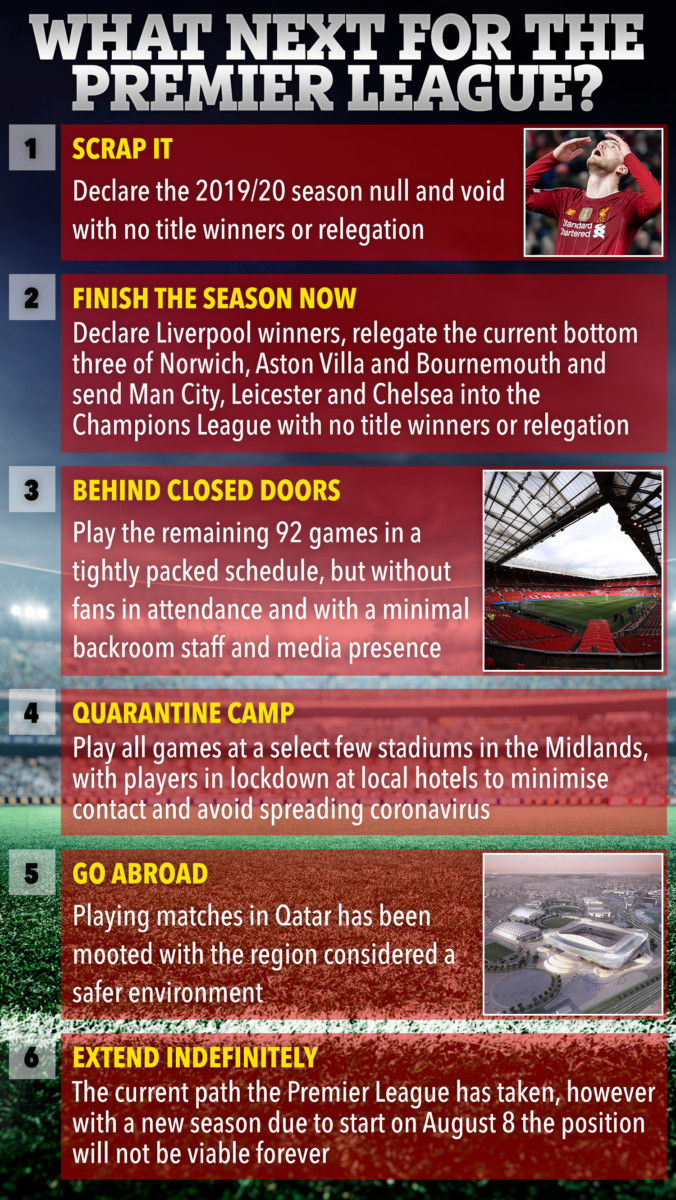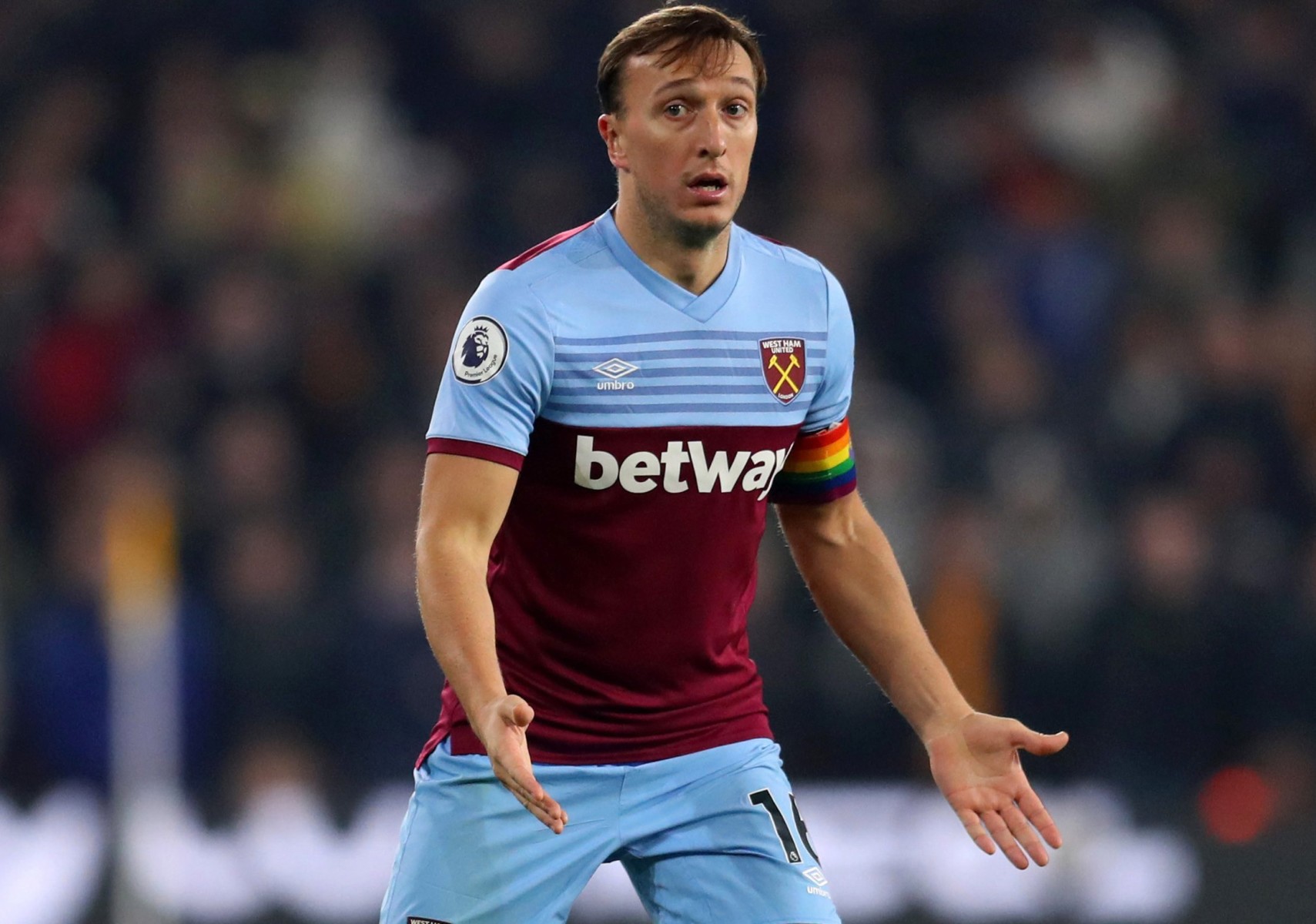THE question everyone wants answered is what has to be done to get the Premier League started again?
Because as it stands we are no closer to confirming a restart date than we were when lockdown began on March 24.
There are issues around training, testing of players, hygiene and medical protocols at training grounds and stadiums, that are complex and need considerable thought.
What we do know is the new Government-imposed lockdown is now fixed until May 7.
By this date players will not have trained for six to seven weeks and what we need to know is that if the lockdown is lifted, will social distancing still be in place?
We have to consider what training will look like after May 7, as players will need to be match-fit to start the season again in June.
Players will have been able to retain some physical fitness at home.
But if social-distancing rules are still in place, physical match-play training will not be allowed — you can’t tackle from two metres away!
So, how match-fit will players be if the season commences, as we all hope it will, by mid-June?
Then there is the question of coronavirus testing.
Proper testing has to be in place for both players and staff.
It will have to be done centrally by the Premier League to ensure every club has the same test.
As this isn’t currently available for all our brilliant NHS frontline workers, how can it be available for our players?
Even if testing is available, we need to know how often we have to test everyone? Is it daily?
If a player gets on the coach to go to a game and starts coughing, we need to know immediately if he has the infection and, more importantly, if he has spread it to anyone else.

We also presume schools will be open at some point and lots of players get coughs or colds from their children, who pick them up from their school friends.
So those players will need to know ASAP if this is a “standard” cough or cold, or the infection, to be sure they do not spread it.
Otherwise they could put themselves in self-isolation for 14 days without knowing if they need to be or not?
This will not be fair on clubs who have a number of players in isolation, despite games having restarted.
So testing is key but will it be available?
There is also the staging of matches.
There needs to be strict medical and hygiene protocols in place at all of our stadiums.
These must have Government, Sports Grounds Safety Authority and police approval.
Police officers will need to be at games even if they are behind closed doors as some supporters will travel to the stadium, even if they cannot come in to watch!
But the police will want to ensure attending matches does not drain resources away from other matters.
Everyone at the stadium — and even behind closed doors this is about 300-500 people — including security, staff, medical officers, players, referees and media, will have to have temperature checks, fill out health questionnaires and observe social distancing.
Player areas will have to be sterile and changing rooms extended.
There will be minimal contact between players and everyone else, with pitchside access restricted and no handshakes.
Then there is the issue of injuries. All this is manageable but what if a player gets injured, where do we send him?
It can’t be to an NHS hospital that is already under pressure and private hospitals are carrying out NHS procedures and not taking in injured footballers. So then what?
These are all big questions that need answering.
The Premier League is doing a sterling job to work through them but they are not all easy to figure out and there are many answers outside our control.
On a lighter note the spirit of Captain Tom Moore runs deeply through the national psyche.
There’s unlikely to be anyone who captures our imagination like the 99-year-old, who walked the length of his garden 100 times before he hits his glorious century of life.
The joy is that while no other NHS contributor is going to knock him off the front pages, plenty are making efforts for charity.
We must include many, many professional footballers among them.
So many have responded to this terrifying virus with considerable generosity and I know this is so at West Ham and that there are dozens of other instances elsewhere.
I am proud our captain Mark Noble is one of four administrators of the charitable fund players have set up called PlayersTogether, to raise money for the NHS.
I’d like to say how grateful we are to our players and staff, and to all those in football who are doing their bit to keep the ball rolling.

